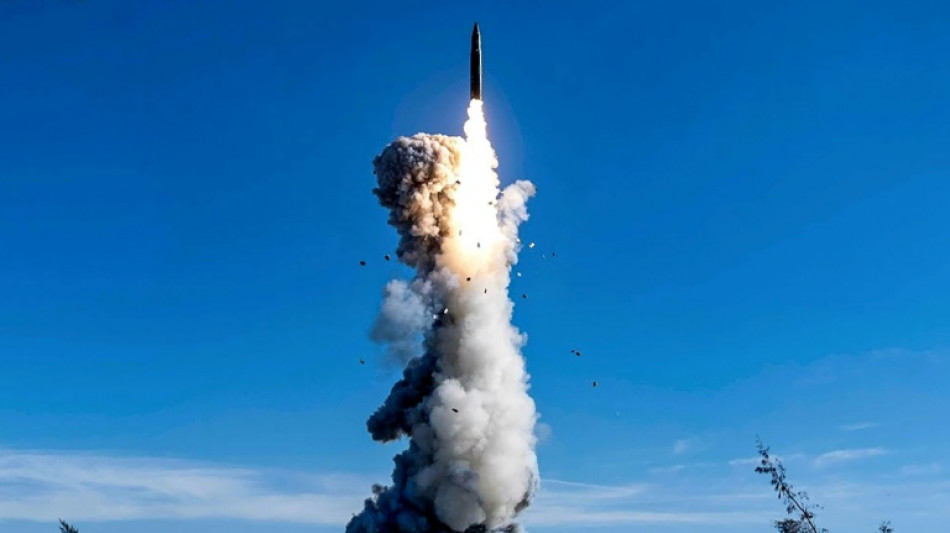
-
 'Almost impossible': Brazilian skater Sandro Dias makes history on mega ramp
'Almost impossible': Brazilian skater Sandro Dias makes history on mega ramp
-
Trump targets more opponents after 'dirty cop' Comey
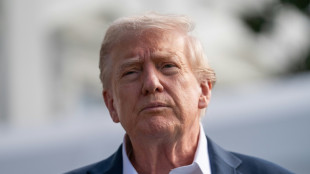
-
 Sixers' Embiid eyes consistency after injury-plagued NBA season
Sixers' Embiid eyes consistency after injury-plagued NBA season
-
More questions than answers surround Trump's TikTok deal

-
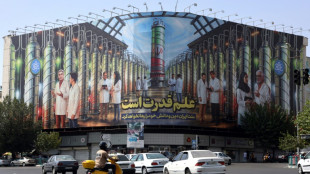 Iran sanctions look set to return as last-ditch UN push fails
Iran sanctions look set to return as last-ditch UN push fails
-
Sitting ducks: Venezuelan fishermen wary of US warships
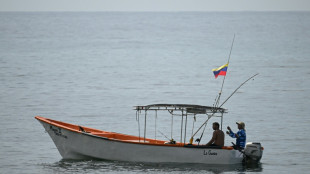
-
 Nissanka ton in vain as India edge Sri Lanka in Super Over
Nissanka ton in vain as India edge Sri Lanka in Super Over
-
An Aussie tycoon bets billions on cleaning up iron ore giant
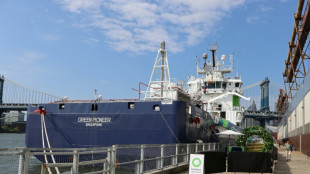
-
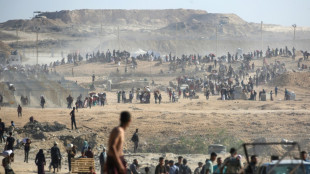 Civil defence says 50 killed in Gaza as Netanyahu vows to 'finish job' against Hamas
Civil defence says 50 killed in Gaza as Netanyahu vows to 'finish job' against Hamas
-
Canada's Corrigan leans on Olympic experience in quest for Women's Rugby World Cup gold

-
 Kolisi warns 'resilient' Boks are braced for Puma mauling
Kolisi warns 'resilient' Boks are braced for Puma mauling
-
Fearing US invasion, Venezuela to hold emergency drills
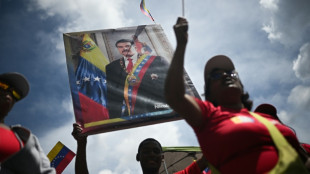
-
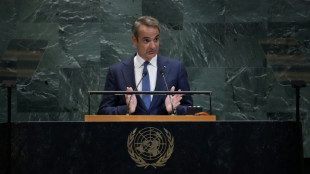 Greek PM warns Israel risks losing friends
Greek PM warns Israel risks losing friends
-
Pakistani PM appeals for India talks, hails Trump role
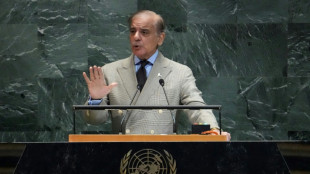
-
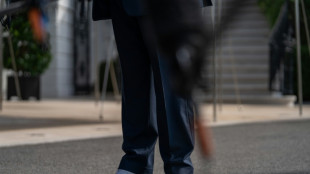 Trump aims to make America great again amid Ryder Cup woes
Trump aims to make America great again amid Ryder Cup woes
-
Trump arrives at Ryder Cup with US seeking comeback

-
 Europe grabs 3-1 lead as US seeks Trump boost at Ryder Cup
Europe grabs 3-1 lead as US seeks Trump boost at Ryder Cup
-
Lufthansa planning thousands of job cuts: sources

-
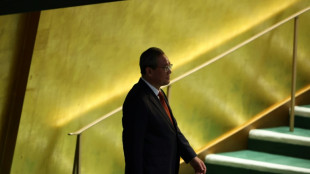 China at UN warns of return to 'Cold War mentality'
China at UN warns of return to 'Cold War mentality'
-
England great Alphonsi expects Canada to shine in Women's Rugby World Cup final

-
 Tottenham reject interest in reported record £4.5bn sale
Tottenham reject interest in reported record £4.5bn sale
-
Man Utd boss Amorim admits uncertainty ahead of Brentford clash

-
 Zverev wins Beijing opener as Gauff launches title defence
Zverev wins Beijing opener as Gauff launches title defence
-
Barca duo Raphinha, Joan Garcia injured, out for PSG clash

-
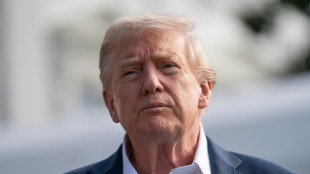 Trump hopes more opponents to be charged after 'dirty cop' Comey
Trump hopes more opponents to be charged after 'dirty cop' Comey
-
US Fed's preferred inflation gauge rises, with more cost pressures expected

-
 Facebook, Instagram to offer paid ad-free UK subscriptions
Facebook, Instagram to offer paid ad-free UK subscriptions
-
Former UK PM Blair could lead transitional authority in Gaza: reports

-
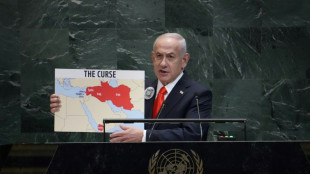 Netanyahu says Palestinian state would be 'national suicide' for Israel
Netanyahu says Palestinian state would be 'national suicide' for Israel
-
The nations and firms threatened by Trump's pharma tariffs
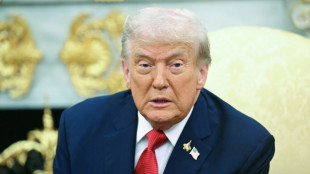
-
 Trailblazing rugby chief Griffin proud of 'incredible' strides for women's game
Trailblazing rugby chief Griffin proud of 'incredible' strides for women's game
-
Brother of Oasis stars denies rape, other charges

-
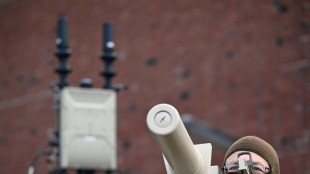 EU steps up 'drone wall' plans after Russian incursions
EU steps up 'drone wall' plans after Russian incursions
-
Kenyan jeans factory to fire workers as US deal expires

-
 Arteta hails Saliba's impact as new Arsenal deal looms
Arteta hails Saliba's impact as new Arsenal deal looms
-
England's Jones channels grief in bid for Women's Rugby World Cup glory

-
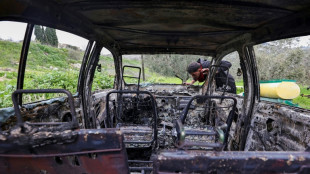 UN identifies 158 firms linked to Israeli settlements
UN identifies 158 firms linked to Israeli settlements
-
Canada's Patrick Watson channels dread into new 'Uh Oh' album

-
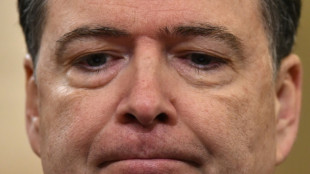 Trump brands indicted opponent Comey a 'dirty cop'
Trump brands indicted opponent Comey a 'dirty cop'
-
Walker an all-time great, says Guardiola ahead of Man City return

-
 Alonso warns against overconfidence before Madrid derby
Alonso warns against overconfidence before Madrid derby
-
Fritz says path to Grand Slam glory goes through Alcaraz, Sinner

-
 UK court drops terror case against Kneecap rapper
UK court drops terror case against Kneecap rapper
-
UK's Starmer urges liberals to fight 'the lies' told by far right
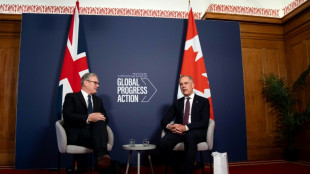
-
 Bagnaia and Pennetta among first Winter Olympic torch carriers: organisers
Bagnaia and Pennetta among first Winter Olympic torch carriers: organisers
-
Sarkozy conviction exposes political divide in crisis-hit France
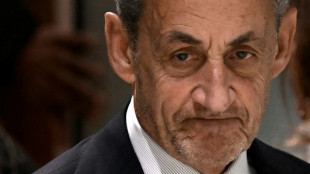
-
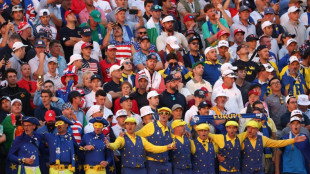 Ryder Cup begins in electric atmosphere at Bethpage Black
Ryder Cup begins in electric atmosphere at Bethpage Black
-
UK to launch digital ID scheme to curb illegal migration
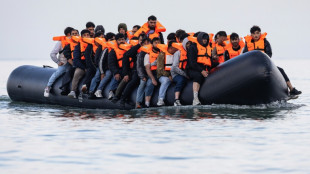
-
 Chelsea's Palmer sidelined with groin injury
Chelsea's Palmer sidelined with groin injury
-
India retires Soviet fighter jet after six decades
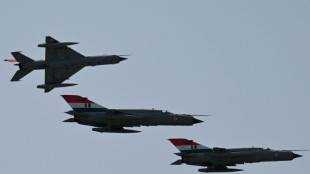

China downplayed nuclear-capable missile test: classified NZ govt papers
China tried to mislead foreign governments in 2024 by playing down the importance of a nuclear-capable missile test over the Pacific Ocean, New Zealand diplomats privately warned in documents obtained by AFP.
Beijing sent shivers through the South Pacific in September 2024, when its elite Rocket Force fired a dummy warhead into the high seas near French Polynesia.
A tranche of classified government briefing notes obtained by AFP shows deep concern within the New Zealand government in the wake of the surprise launch, which China shrugged off as "routine".
It was China's first long-range missile launch over international waters in more than 40 years, the papers confirmed, serving as a blunt reminder of Beijing's potent nuclear-strike capabilities.
"We are concerned that China is characterising this as a 'routine test'," senior diplomats wrote in a memo to New Zealand's foreign affairs minister.
"It is not routine: China has not conducted this type of long-range missile test in over 40 years.
"We do not want to see this test repeated."
China's military played down the test as a "legitimate and routine arrangement for military training".
Behind the scenes, New Zealand diplomats privately decried China's "mischaracterisation".
"As this is the first time that China has undertaken such an action in the Pacific in several decades, it is a significant and concerning development," they wrote in one of the briefing documents.
AFP applied to access the heavily redacted documents -- written between September and October last year -- under New Zealand's Official Information Act.
They were classified as "Restricted", which protects government information with diplomatic or national security implications.
- Nuclear scars -
China has been seeking to cement its presence in the strategically important South Pacific, showering developing island nations with new hospitals, freshly paved roads, and gleaming sports stadiums.
But rarely has it so obviously flexed its military might in the region, where the United States, Australia and New Zealand have long been the security partners of choice.
"We have again asked China why it conducted the test at this time, and why it chose to terminate the missile test in the South Pacific," New Zealand diplomats wrote.
China's Rocket Force launched the intercontinental ballistic missile with little warning on September 25, 2024.
Photos released by China showed a projectile streaking into the sky from a secret location atop a billowing plume of smoke.
It appeared to be one of China's advanced Dong Feng-31 missiles, analysts said, a weapon capable of delivering a thermonuclear warhead.
The long-range missile splashed into a patch of ocean long designated a nuclear-free zone under an international treaty.
Pacific island nations remain deeply scarred by the nuclear tests that shook the region in the decades following World War II.
"This is the first time that we are aware of a test of a nuclear-capable missile terminating within the zone since its establishment in 1986," the New Zealand diplomats wrote.
- Forceful reminder -
China alerted the United States, the United Kingdom, France, Australia and New Zealand before the test.
But there was only a vague indication of what it would do, according to a separate batch of Australian government documents obtained by AFP.
"Beijing advised us of a planned activity the evening prior to the launch, but specific details were not forthcoming," Australian defence officials wrote in November last year.
Pacific island nations, however, were not provided with advance notice of the launch, New Zealand diplomats noted.
Following the launch, Japan publicly voiced "serious concern", Australia said the test risked "destabilising" the South Pacific, and Fiji urged "respect for our region".
Pacific nation Kiribati, one of China's warmest friends in the region, said the South Pacific Ocean should not be a proving ground for jostling big powers.
"The high seas in the Pacific are not isolated pockets of oceans... we appeal to all countries involved in weapon testing to stop these acts to maintain world peace and stability," read a government statement at the time.
China foreign policy expert Nicholas Khoo said the intercontinental ballistic missile (ICBM) test was particularly significant because it took place in the South Pacific.
"Since 1980, China's ICBM tests have taken place within Chinese territory," he told AFP.
"The test is a reminder to regional states that China is a 'full spectrum' power that has economic and military power. It is a peer with the US."
Harvard University researcher Hui Zhang said it was a forceful reminder of China's nuclear strength.
"The test shows that the Rocket Force has an operational and credible nuclear force that can help ensure China's ability to maintain a strong nuclear deterrent," he wrote last year for the Bulletin of the Atomic Scientists.
"The rare public ICBM test seems to have been specifically aimed at dissuading Washington from using nuclear weapons in a potential conflict across the Taiwan Strait."
China's Ministry of Foreign Affairs said that the "facts are clear and no one has been misled".
"The missile test is a routine part of annual military training, in compliance with international law and international norms," it said in a statement.
T.Egger--VB
